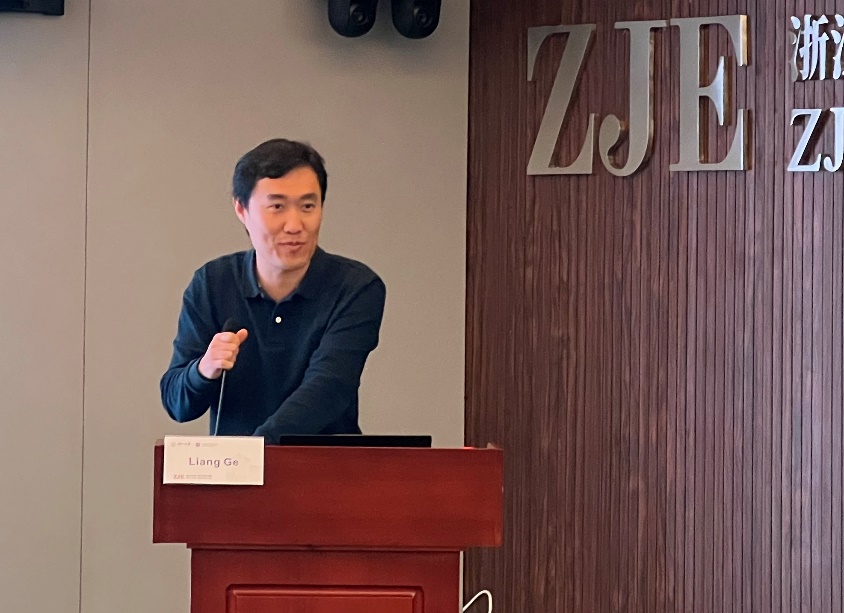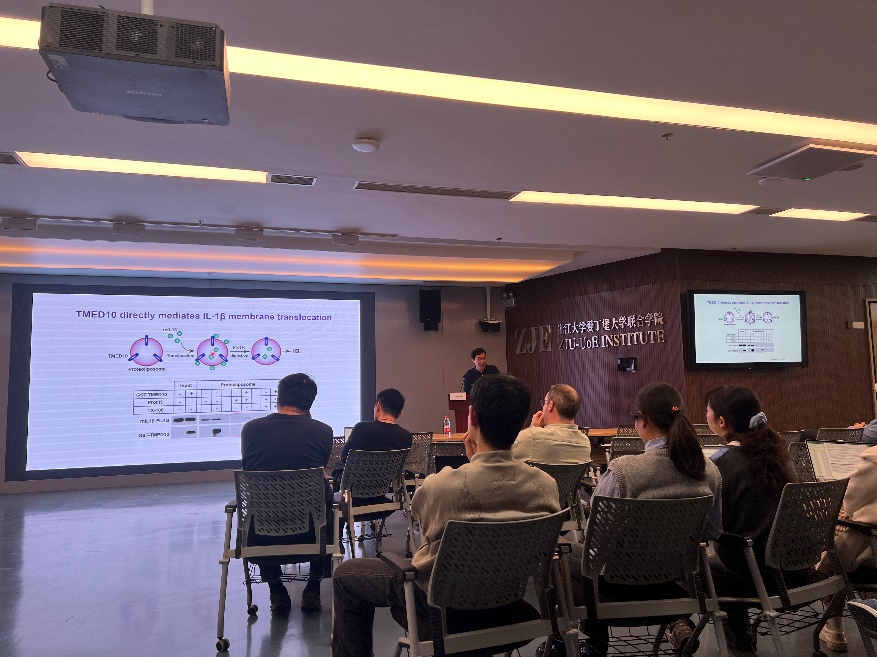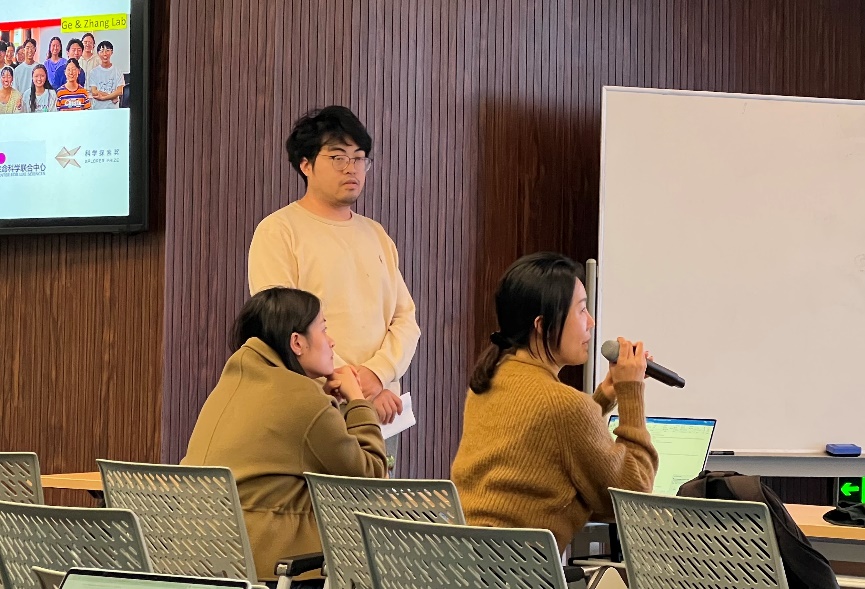On the afternoon of 26th December 2024, the Biomed-X Seminar No. 124 of Zhejiang University-University of Edinburgh Institute was successfully held at A203, ZJE Building. Invited by ZJE Vice Dean, Suhong Xu, Professor Liang Ge gave an academic report on “Lipid regulated formation of channel like machineries for versatile cargo transport in unconventional secretion”. ZJE PhD student Xingyu Cai chaired the seminar.

Professor Liang Ge has long been committed to the study of membrane biology. Protein secretion is a fundamental biological process essential for intercellular communication. In conventional secretion, the SRP-SEC61 system acts in cargo translocation. However, it remains unclear how cargoes lacking a signal peptide enter secretory vesicles in unconventional protein secretion (UcPS), and how diverse UcPS cargoes are specifically controlled in different settings has not been determined. Professor Ge's team discovered that the TMED family proteins are cargo translocators in UcPS. TMEDs individually and cooperatively regulate translocation of different sets of UcPS cargoes into secretory vesicles and facilitate cargo release. The ER-Golgi intermediate compartment (ERGIC)/Golgi acts as the station of translocation due to its special lipid composition, where sphingomyelin stimulates translocation but cholesterol antagonizes the effect. TMED10 forms a channel with two open states, with a high current state correlating with translocation activity. Together, these findings implicate TMEDs as a new class of protein channels for differential translocation and release of multitude UcPS cargoes.

During the event, faculty and students actively engaged in discussions, demonstrating their open-minded approach to academic exploration and critical thinking about research questions. Professor Ge patiently and thoroughly answered every question, deepening the understanding and insights of participants in this field.

As the 124th session of the Biomed-X Seminar series, this report underscores the institute's commitment to fostering high-level academic exchanges through its academic brand building efforts. The institute will continue to provide a platform for faculty and students to engage in cutting-edge scientific discussions.







